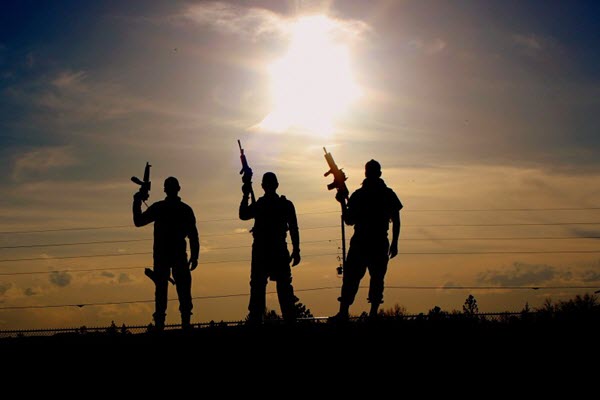Introduction
Anytime you have a high-profile executive or Ultra-High Net-Worth Individual (UHNWI) venturing into dangerous or foreign territory, a team of security professionals needs to scout and secure the area in advance. This security advance team precedes the principal to all the locations and venues listed on their itinerary.
Although this is done as-needed, it is not unusual for some executives to have advance operations done daily, both when they’re in and out of the country. This is especially true for those that face a higher-than-average level of risk exposure.
What exactly is an advance team, and what are their specific duties? Here’s everything you need to know.
What is an Advance Team?
An advance team is a group of security personnel who operate on an as-needed basis to precede the principal to all venues and locations on their itinerary. It doesn’t matter if the principal is on a multi-nation tour, going for a weekend hike in the mountains, or simply going to the office in the morning.
An advance operator is responsible for going ahead of them, making the necessary arrangements for when they arrive, and establishing all the required security cordons. The work that goes into preceding the principal while on a multi-nation tour versus what when they’re going to work every morning is worlds apart.
As a rule of thumb, advance agents should visit the sites on the itinerary at least twice before the principal’s arrival. The first time is to survey the site to determine the conditions they’ll be working in and develop plans and procedures to be used during the principal’s visit. The second visit is to set up the necessary security cordons, as well as execute any other security-related tasks that may be required.
The advance team needs to remain on-site for the duration of the principal’s visit until the Detail Leader releases them once certain predetermined conditions have been met.
Presidential Advance Team
The Presidential Advance Team is made up of the US Secret Service and is by far the most expensive, complex, and thorough advance team in the world. The Secret Service advance team takes care of all aspects of the presidential movement, including security and logistics for his motorcade, and protecting him from the 500+ death threats he receives every month.
Duties of an Advance Team
1. Conduct All Security Liaison and Coordination
An advance team operator is responsible for getting in touch with all the pertinent points-of-contact (POC) listed on the itinerary or as indicated by the principal’s staff. They have to get in touch with all the required security liaisons and coordinating staff for the respective agencies.
POCs may include civilian agencies directly involved in the security function, intelligence agencies, or various law enforcement entities. They provide valuable information on specific itinerary sites.
Additionally, advance team operators also liaise with the host of the event, the staff, and other POCs that will interact directly with the principal at the location. This is important to gather all the necessary information about the visit.
2. Conduct Site Surveys at All the Locations
Advance agents usually carry out site surveys to analyze the venue. They check for things like:
- Potential safe havens
- The existing security measures
- The location of the bathrooms
- The physical layout of the premises
- The presence and location of phone lines that can be used by both the principal, as well as protective agents
- The resources required to establish sufficient levels of security during the visit
- Location of entrances and exits
This information allows the advance team operator to come with an implementable plan.
3. Assess Manpower Requirements
The duration of the visit and its complexity will determine how the advance team will be constituted. A low-profile event in an environment with little to no threat can operate effectively with a two-person advance team, which happens to be the absolute minimum number of agents any advance team can have.
This allows the workload to be shared, and the overall functions of the team can be expedited. If a high-profile individual is venturing into a high-risk area, they will need a bigger team.
If the mission is a complex one, multiple two-person advance teams may need to be deployed. If a principal’s resources allow, you can never have too many advance team operators.
4. Identify Threats and Countermeasures
Advance agents thoroughly scout a location and identify potential ambush locations, chokepoints, approach routes, and any other problem areas. They also identify and execute the most appropriate countermeasures to deter those threats.
If an itinerary has several sites to cover within a short period, multiple advance teams can be deployed to conduct a site survey, risk assessment and come up with a series of countermeasures for each location. The same applies to a multi-nation trip.
5. Develop a Comprehensive Checklist of Requirements
Checklists ensure that advance operators don’t forget pertinent information they gathered during the advance visit. This is especially important for missions where the principal plans to stay overnight, has a public speaking engagement, needs to coordinate flight arrival and departure, or takes part in any other activity.
An advance agent also has to make sure they have all the necessary information on the principal’s preferences and any special requirements they may have. For instance, do they need to avoid microwave ovens because of their pacemaker? Do they need specialized equipment like a heart defibrillator or oxygen tank? This information would need to be on the checklist.
Get a Security Assessment
Operating without an advance team means leaving everything to fate, hoping that everything pans out as it should. An advance agent is the “insurance” and “assurance” you need to rest easy knowing that the location you visit will be safe, secure, and tailored to your needs long before you get there.
Talk to a Hyperion Security Advisor to evaluate your advance team needs or help you determine your overall security requirements.




